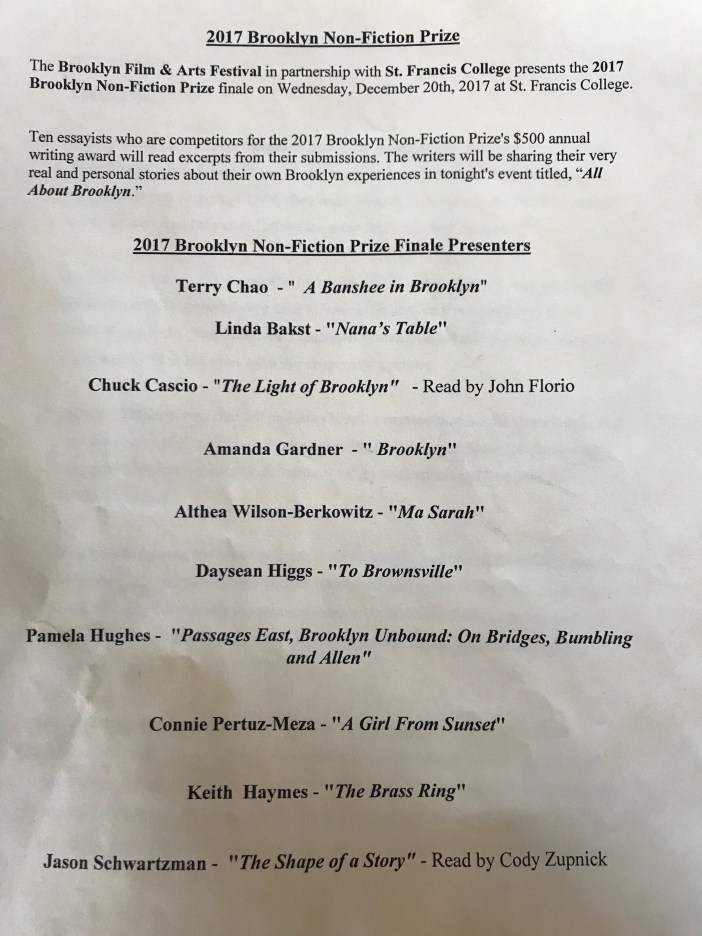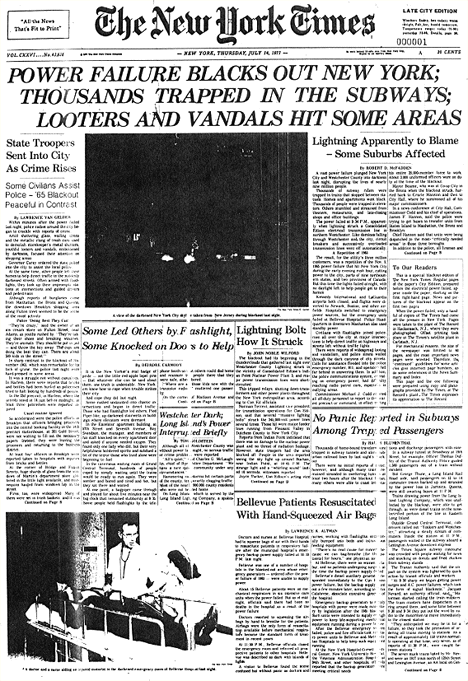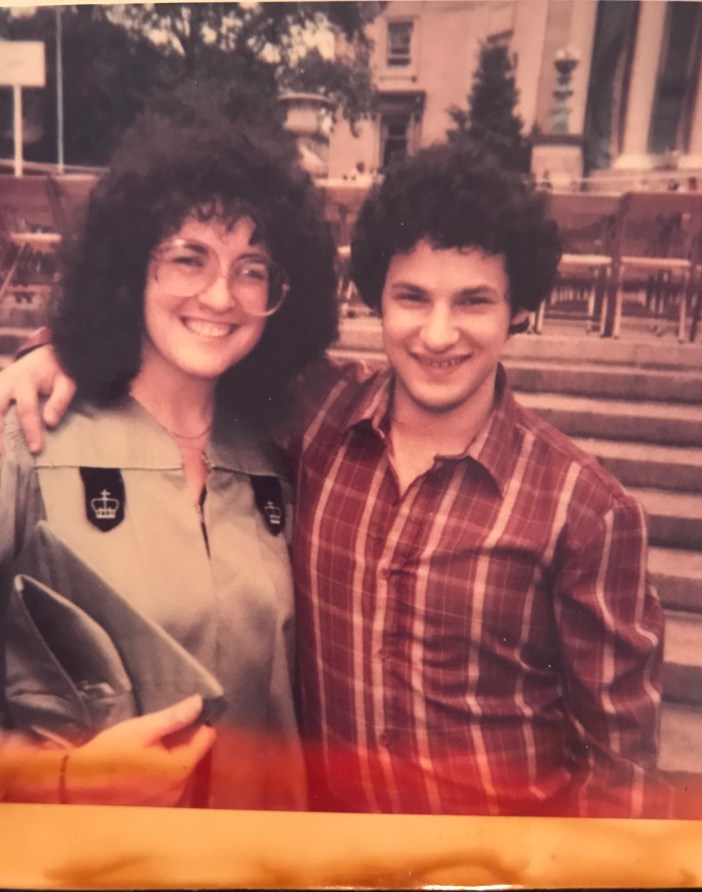Imagine my surprise when I opened my email a week and a half ago and found out I was a semifinalist for the Brooklyn Nonfiction Prize! I couldn’t believe it. I submitted a piece, Nana’s Table, which you can read here, to a contest sponsored by the Brooklyn Film Arts Festival.
It was Friday night, December 15th, and I was sitting at the island in my kitchen, with Gary, Daniel and Beth. Daniel and Beth had just driven up from New York City to spend the weekend with us. We would be celebrating Hanukkah the next day with more of the family coming to our house. We were chatting easily, I was mindlessly playing Text Twist on my computer, when a new email popped up. I saw the subject line ‘Brooklyn Nonfiction Prize.’ I swallowed hard and opened it immediately. When I saw that it said that I was a semifinalist for the prize, I held up my hand and said, “Sorry to interrupt, but you’re not going to believe this!” I proceeded to read the email to them. They were as excited, or more so, than I was.
The email explained that semifinalists were invited to read a portion of their story at an event scheduled for the following Wednesday evening (December 20th), which coincidentally was my father’s birthday. He would have been 85. Maybe it was a sign.
The reading would be held at St. Francis College, in Brooklyn Heights. I did a quick check of my calendar and saw that I had a hair appointment, but that could easily be changed. There was nothing to keep me from going. Dan and Beth said they would come, too. The email asked for an RSVP, so I sent a quick response saying I would attend. With more than 20 people coming for our Hanukkah party the next day, I didn’t have time to give it more thought. I had salads to prepare, potatoes to peel and presents to wrap.
Saturday passed in a blur, busy from the moment I woke up until I went to bed that night. My brother Mark had driven down to New Jersey to pick up my mother so she could attend the party. My in-laws were able to come too – in fact we planned to celebrate my father-in-law’s 95th birthday. Cousins, in-laws, nieces and nephews mingled and ate potato latkes. I misjudged the amount of food – usually I have too much. Not this time. After the bowls of tuna and egg salad and the platter of lox were ravaged, I made more, and sent Mark out on an emergency lox run. In my family we don’t need a beer run, we need more lox.
Lying in bed after the party, exhausted, I started to think about the logistics of the next few days. I decided since Mark had schlepped to Jersey and back to get our mother, it was only fair that I should drive her home. In an unfortunate bit of timing, we had promised the use of our New York City apartment to a colleague of Gary’s whose daughter was having surgery in a city hospital on Monday. So, I couldn’t just drive Mom back and stay in the city for the week.
After leaving my mom at her place in Freehold, I had time alone in the car – my first private time since Friday night. I could finally think about the upcoming reading and what it meant to me. I was surprised at how validating it felt. I guess I shouldn’t have been surprised. I think sometimes, in an effort to protect myself from future disappointment, I don’t allow myself to take pleasure in accomplishments. The refrain in my head usually includes messages that devalue whatever it is I did. In this case, between feeling proud of myself (there I said it!), I thought things like: Probably nobody good entered the contest. Or, I have no chance. And, I hope I don’t embarrass myself. My brain ping-ponged back and forth.
The reading at the college was free and open to the public. I went back and forth in my mind about inviting people to it. Should I post something on Facebook? I looked to see if the Brooklyn Film Festival had it listed as an event that I could share. Finding nothing, I decided I didn’t feel comfortable creating something. I felt like I would be imposing on people. Or maybe I just didn’t want to be disappointed if no one came.
I drove back to Albany. I did my usual things, every so often getting hit with nerves at the thought of appearing in front of a bunch of strangers and sharing my story. Though I presented programs and trained small and large groups during my previous professional life, this was different. This was sharing a piece of myself.
In order to simplify things, Gary and I decided I would stay at a hotel Wednesday night. We didn’t want to ask his colleague to leave our apartment, he was already dealing with a stressful situation with his daughter. I was able to get a good rate at the Marriott near the Brooklyn Bridge and we decided I should think of it as a treat. The hotel was only a few blocks from St. Francis College on Remsen Street, it would be convenient, too.
I took Amtrak down to the city on Wednesday and arrived early in the afternoon. I hopped the A train and found my way to the hotel. Fortunately, they had a room available even though it was before check-in. I made myself comfortable, took a shower and practiced my reading. Although I didn’t put anything on Facebook, I did email Merle and another long-time friend who lived in Manhattan, Steven, to invite them – making it clear that I knew it was short notice and I would understand if they couldn’t make it.
Steven responded that he would be happy to come and he would meet me there. Merle wrote that she would come, as long as she had recovered from the bug she was battling. Happily, she did and she came to the hotel at about 4:00.
I got a text from Aunt Clair that she would come, too. I had a small but mighty rooting section: Dan, Beth, Aunt Clair, Merle and Steven. I knew my mother, Leah and Gary would be sending positive thoughts even though they couldn’t physically be there. I felt very lucky to have so much support.
Merle and I left the hotel and met Aunt Clair at the Burger King down the block. We walked together to St. Francis College. As we were about to go in, Dan and Beth joined us. We found our way to the Maroney Theater on the 7th floor. There were a few people in the theater setting up the podium and microphone. It was a small theater with a performance space at the front and rows of seats upward from there.
We took seats in the middle, not too close to the front, but not too far back either.
More people started to trickle in, including Steven. We all chatted and joked, and I tried to relax while taking it all in.
A young man distributed a sheet of paper that turned out to be the program.

I was slated to be the second reader of ten. I studied the other nine names and titles of their stories. I looked around the room – there was a wide array of ages, races and sexes. I wondered who the writers were.
The program was supposed to begin at 7, but we had arrived early. About five minutes before 7 the same young man who passed out the program asked for our attention. He wanted to take attendance to see if the readers were present. Several were still missing. We went back to chatting and waiting, more people arrived. The theater was getting pretty full.
At 7:10, it was decided that the program should begin regardless. The young man stepped up to the podium and tapped on the microphone. It was working. I was relieved because my voice does not project well and I have difficulty sustaining any volume. He introduced the first piece, but the woman wasn’t there. That meant I was going first.
I took a deep breath and went down the aisle stairs and took my place at the podium. I read Nana’s Table, fumbling only once or twice over words. I couldn’t see the audience very well with the white spotlight on me, but I looked up every so often trying to make contact with my family and friends. The room was very quiet, as I read. It felt like people were listening intently. Toward the end of my reading someone’s cell phone went off, but they silenced it pretty quickly. I didn’t let it distract me.
There was applause when I finished and I returned to my seat. And just like that, it was done. The young man introduced the next writer. Different stories of Brooklyn unfolded. A range of experiences were recounted. A young African-American man described growing up in the projects where gangs dominated, but he found community there, too. A Latina wrote movingly about her mother’s and sister’s struggles in Sunset Park, sadly known as ‘Gunset’ Park at the time. Another shared her story of taking a class at Brooklyn College with Allen Ginsburg, the beat poet. A retired police officer, who like me started writing when he retired at age 55, told his story of deep regret at not helping a childhood friend who grew up with him in Coney Island. Two other stories, like mine, focused on relationships with grandparents. A picture of a borough filled with people of different ethnicities, but similar pains and struggles, was painted.
After all the stories were read, all the authors were invited to the front. We received a nice round of applause and then the emcee announced the winner. The retired cop won the Brooklyn Nonfiction Prize for 2017. I can’t lie, I was a little disappointed. But, the whole thing had been an enriching experience. Dan told me several times how proud he was of me. Leah sent texts with the same message. I knew Gary and my mother were eagerly awaiting hearing the result. Their collective pride in my effort was very meaningful to me.
Hearing the other stories, sharing mine, confirmed that I was on the right track, to borrow a phrase from my father-in-law. I was doing what I should be doing.
Everyone with me had enjoyed the evening immensely. Steven said, “Sign me up for your next reading.” I smiled and thought, “I hope there is a next reading.”
It was late by the time it concluded. Dan and Beth, who had work the next morning, gave me hugs and went back to Manhattan, as did Aunt Clair. Steven, Merle and I went out to dinner at an old-style Italian restaurant on Court Street. After enjoying several glasses of chianti, warm Italian bread and a variation on eggplant parmigiana, we parted ways. I went back to the hotel.
I woke early the next morning and took a walk. I hadn’t been in Brooklyn Heights for many years. I found my way to Brooklyn Bridge Park, which didn’t exist the last time I was in the neighborhood. It was a sunny, brisk morning. I marveled at how beautiful it all was. I counted my blessings as I walked.










